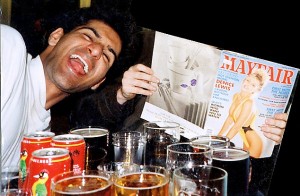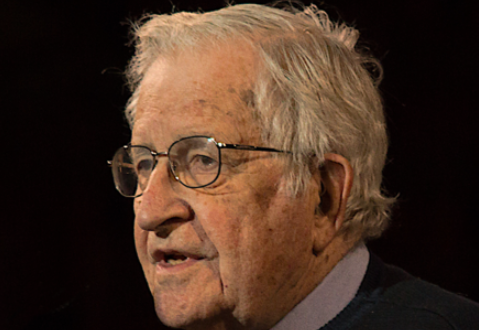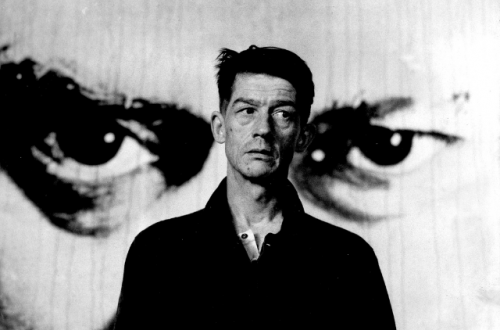This is a guest post by HP commenter Alec
Perhaps better legal minds than mine can explain how this came about. On 12 March 2009, during a broadcast of Question Time, Charles Moore, a former editor of the Daily Telegraph, stated that the senior-leadership of the Muslim Council of Britain considered the killing of British soldiers to be a “good” and even “Islamic” act to follow.
[Moore’s remarks start at 2:56 here]
This had followed a political protest in which a pro-victory gaggle of Dr. Moreau’s grotesques by the name of Followers of Ahl Us-Sunah Wal-Jamaa’ah – but which newspapers such as the Guardian insisted on describing as “anti-war” and plain-old “Muslims” – had harangued a home-coming parade by the 2nd Battalion of the Royal Anglian Regiment in Luton.
The leader of this group is Anjem Choudary, pictured here during his heady student days.

What Would Omar Bakri Mohammed Think?
Although it is an al-Muhajiroun front-group, it was on this backdrop which Moore made his comments. Any functioning democracy or healthy political debate requires discussion events such as Question Time which allows ideas and statements to be bandied about, and challenged if needs be.
We are no longer living with only a handful of media outlets – newspapers or broadcasters – owned by one or two barons, and where a maligned individual has little recourse to set a record straight. For a start, “record” is an out-of-date analogy, and there are also blogs and foreign state-owned broadcasters advertising on London buses.
The Secretary General of the MCB, Muhammad Abdul Bari, for instance, has been reported as stating that homosexuality is incompatible with his religion. He, like everyone else in this society, should be free to hold socially and religiously conservative views as long as he does not attempt to impose them on the wider society.
I find the MCB’s erstwhile prolonged boycott of Holocaust Memorial Day extremely distasteful, and their rationalization based on misconceptions or outright falsehoods, but I accepted it through gritted teeth.
I mean, it is not as if he invited to the East London Mosque a big cheese in Jamaat-i-Islami, a Bangladeshi religio-political party of which senior members were intimately involved in the 1971 East Pakistan Civil War in which upwards of two millions Hindu and Muslim peasants and dissidents were killed.
As far as I can tell, Abdul Bari’s case rested on words he offered to the Independent two years previously. Here they are:
Do you find the killing of British troops in Iraq unacceptable?
Our troops are doing an unenviable job. It is unacceptable and appalling to hear of them being attacked and I am very sorry for their families. We appear to have learnt very little from our history of interfering in other countries, and I believe, history in turn, will not look very kindly at our recent actions.
That this underpinned Abdul Bari’s argument was implicitly confirmed by a press-release from representing solicitors, Carter and Ruck; and explicitly confirmed in paragraph five of a press release from the BBC.
Thus, after between four and six years of British service personnel being killed by insurgents and violent extremists, and two years after 52 Londoners were murdered by self-immolatory terrorists, Abdul Bari said was “history will judge us”. Did he clarify this statement at any point?
In 2006, whilst still in favour with Government departments, Kaa sound/lookalike MCB-spokesman Inayat Bunglawala had responded to online questions on the Muslim Discussion Forum concerning ‘mixed messages’ from the MCB-leadership with regards to support for violent extremism. He explicitly stated that no pleasure should be taken in targetting of British service personnel in Iraq or Afghanistan:
British Muslims should in my view work with other sections of our society to ensure that British troops are brought back from both Iraq and Afghanistan without delay. It would be wrong to take any pleasure in the deaths of combatants in those conflicts, whether British, Iraqi or Afghani.
At another point, however, he was reported as stating:
I don’t agree that there is anything ambiguous about the MCB’s position on suicide bombings. We have pepeatedly made it clear that we utterly condemn the deliberate killing of all civilians whether they are Muslims or non-Muslims, and whether it is carried out in the UK or anywhere else in the world.
Does the same extend to not targetting service personnel and other decreed combatants, or is this considered an onerous task not to be revelled in?
Further discussion of alleged links between big cheeses in the MCB and violent extremism, notably Jamaat-i-Islami in Bangladesh and beyond, can be found here.
Although Moore mentioned no individual by name, Abdul Bari took it as reference to himself and sued. The presiding judge accepted the following argument from Abdul Bari’s solicitor:
[…] although Dr Bari was not actually mentioned by name, the “leadership” of the MCB was referred to, by implication referring to him in his capacity as leader and chief spokesman of the MCB.
Mr Tudor said the BBC accepted that these allegations were untrue – in fact, in 2007, Dr Bari said publicly that the killing of British troops in Iraq was unacceptable.
The BBC has agreed to pay Abdul Bari £45,000 in damages plus legal costs. Abdul Bari has stated his intention to donate they money to charity. Bear in mind, the MCB is a registered charity.
Anyone with a passing interest in libel writs in the English courts should be entirely unsurprised to hear the presiding judge’s name. He is not pictured here.

- Be-ermine’d Twat
What is also puzzling me is that other senior members of the MCB *are* considered to be supportive of the targeting of British service personnel: notably the current Deputy Secretary General, Daud Abdullah. A few days before the broadcast of Question Time, the Observer had reported that Abdullah and other senior British Islamists (including Chief Imam Shaykh Abdul Qayyum of the ELM) had signed what has become known as the Istanbul Declaration.
As reported, the Declartion implored the “Islamic Nation” to oppose by any means thought necessary all individuals deemed supportive of the “Zionist enemy” (cf. Israel). At the time of signing, foreign political leaders, including the British Prime Minister, Gordon Brown had suggested providing peacekeeping Naval forces to monitor arms-smuggling between Gaza and Egypt.
An open letter from the then Secretary of State for Communities and Local Government, Hazel Blears was subsequently published in the Guardian in which she stated that no further dealings would be conducted by the British Government with the MCB until it distanced itself from Abdullah’s remarks and he resigned.
In a response, also published in the Guardian, Abdullah called her remarks a “misguided and ill-advised attempt to exercise control” and stated his intention to remain in position; with the apparent backing of the rest of the MCB leadership. Subsequently, he announced his intention to sue Blears, in respect of her office, should she not retract her letter and issue an apology by 15 April 2009.
A letter from the Treasury Solicitors, acting on behalf of Blears, to Abdullah’s solicitors revealed their willingness to continue with such a course of action. It closed with the statement, “It follows, of course, that your offer of settlement is rejected”. No further reports of attempts to pursue a libel case by Abdullah or the MCB have been heard.
So, my question is, even if Moore’s statement to be have been considered a reference to Abdul Bari, why was it considered libelous considering:
* The MCB’s continued tactit toleration of its Deputy Secretary General following his endorsement of the Istanbul Declaration;
*A lacklustre response from the Secretary General of the MCB when asked to condemn attacks on British service personnel;
* Apparently contradictory statements, in response to internal concerns about support for violent extremism within the MCB, from another senior MCB member regarding violent extremism in which a distinction between civilians and military targets was seemingly drawn;
* Existing concerns of links between senior MCB members and the violent extremism of Jamaat-i-Islami?
Update: here, from 4:25 into this BBC interview recorded in 2004, is Abdul Bari on the jihadis of Fallujah:
Roger Bolton “You’ve called the assault on Fallujah barbaric. Wasn’t its occupation by Iraqi militants and foreign fighters, using civilians as shields, also barbaric?”
Abdul Bari “Well we have to see what happened in the beginning, as mentioned by some of your, some of the people you interviewed, and I think agreed by the international community, that the occupation of Iraq was illegal. So, if people of Iraq come up and want to fight against the occupation army, we know that, we also mentioned somewhere, we know that there could be some people from outside Iraq that are coming and that is because the main reason that the occupation happened.”
Roger Bolton “Do you think therefore that armed resistance of the sort we are seeing in Fallujah is legitimate? You would support the fighters who are ranged against American and British troops?”
Abdul Bari “Well, people of Iraq have to decide, because the war has been imposed on them.”
Roger Bolton “I’m sorry sir, I was asking if you, not the people in Iraq, do you therefore think it is legitimate for people to fight against the American and British troops in Iraq?”
Abdul Bari “Well, it’s for the people of Iraq to decide.”
Roger Bolton “But it certainly could be legitimate, you’re not telling them it’s wrong.”
Abdul Bari “Well, what we are saying is that the occupation of Iraq itself was wrong”


